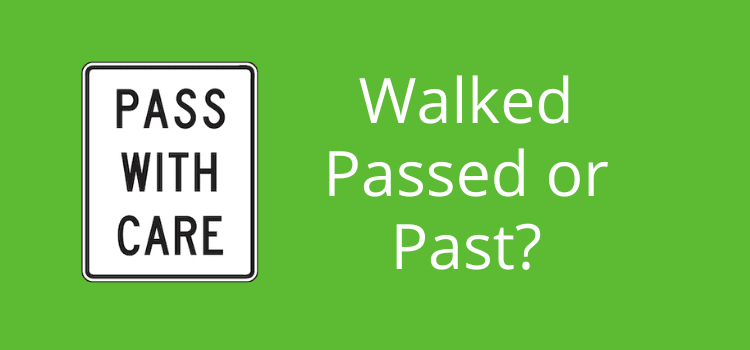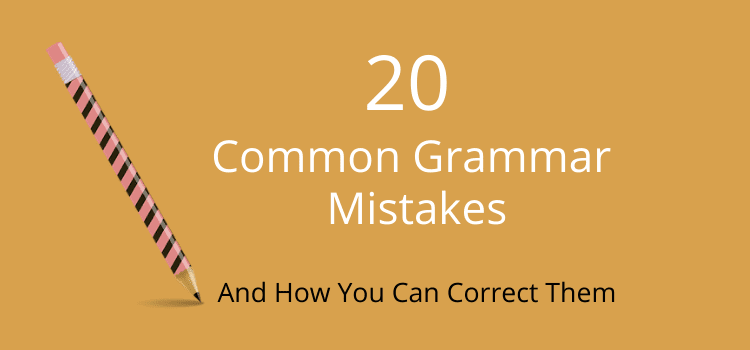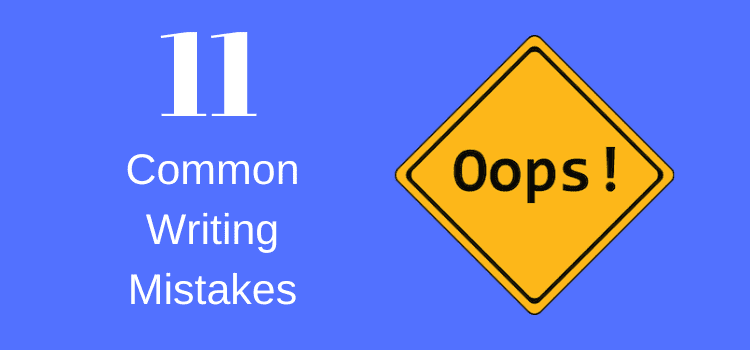
Walked passed or walked past is one of the most common confusing word choices in writing.
The correct form is walked past. Walked passed is incorrect.
It is because the word past is an adverb, so it modifies the verb walked. Passed is a verb, so it cannot modify the verb walked.
The words past and passed can be a little tricky to use in the right way. Let’s look at how you can get them right every time.
The difference between passed and past
You often see the incorrect use of these two words in writing.
The problem arises because of the confusion between the verb passed and the adverb past, which both sound the same.
Both passed and past have a similar meaning of passing from one side of something to the other.
For the verb, it is easy.
But the word past can change meaning depending on whether it is an adverb, adjective, noun, or preposition.
Walked passed and walked past is one example of the challenge.
The easiest way to get these two words right is to decide if you are using a verb.
If you are, it’s always passed.
But there are many other expressions with these two words that can cause problems in writing.
Let’s look at how you can check.
The verb pass is easy

Generally, we use the verb pass to indicate movement or cause to move in a specified direction.
It can also mean changing from one state or condition to another.
Also, spending or using up a period of time.
It is a regular verb, which means that the past form is passed.
The present form is pass or passes, and the present participle is passing.
When you use it as a verb, there is little chance of you making a mistake.
From the image above, you could write these examples.
People passed the girl sitting on the floor.
The girl passed her time studying the painting.
She didn’t notice the people as they passed by.
The man passed through the gallery without looking at the paintings.
When you use the verb, there is no confusion at all.
But when you use past, it’s a different story.
The word past has many meanings

You really have to know what part of speech you are using when you use the word past.
Look at these quick examples to help you.
Notice that the adverb usually indicates movement, but the other forms generally refer to time.
Past as an adverb
He drove past the house but didn’t stop.
He ran past us so quickly. So we didn’t have a chance to stop him.
Past as an adjective
He’s the past president of the association.
The past year has been very difficult
Past as a noun
Most nations have a checkered past.
What’s done is done and is all in the past now.
Past as a preposition
I can’t believe it. It’s half past five already.
He ran on past the security checkpoint.
The key to understanding when and how to use the word past is to know what type of word you are using.
You need to decide if it’s an adverb, adjective, noun, or preposition.
Using a verb before past

The easiest way to avoid making a mistake is to identify the first verb in a sentence.
You will always use the adverb past after the verb.
There are many verbs you can use with past to indicate movement in a specific direction.
She walked past him, covering her face with her cap.
He didn’t recognize her as she strolled past him.
He flew past us as he ran from the police.
As the boat sailed past, the crew waved to the crowd.
When walked and passed can sometimes occur together
Passed and walked are both verbs. The only way to use them together is with a comma separating the two verbs to indicate that one action follows another.
It’s a rarity, but here are a few examples.
Into town, he walked, passed a bakery, and couldn’t resist buying a tempting, sweet cream tart.
Down the cobblestone street, she walked, passed a lively café, and was lured in by the sounds of happy chatter and aroma of freshly brewed coffee.
Beneath the canopy of shady trees, they walked, passed a hidden waterfall, and listened to the relaxing sound of cascading water.
In the sentences above, passing something occurs during the action of walking, which is then interrupted by a third verb, such as couldn’t resist, lured, and listened.
Speaking and writing
When we speak, these two words don’t cause us any problems.
But because they are homophones, which means that they sound exactly the same, we have to get them right when we write.
There are many such word pairs, such as bear and bare, hole and whole, and poured and pored.
While past and passed make no difference in speaking, you have to check your usage and spelling when you write.
Common mistakes with past and passed
There are many expressions that use these two words.
Here are the correct forms of some common phrases.
Sadly, he past/passed away last night.
I’m really past/passed caring about what he does.
The past/passed few days have been hectic.
It’s way past/passed the deadline.
I don’t know why, but she just past/passed out.
I think he is well past/passed his prime.
We past/passed around the hat and collected $40.00.
It’s well past/passed my bedtime.
When you use idioms or common expressions in your writing, take extra care, and make sure you are correct.
Summary of passed or past
Whenever you use these two words in your writing, pass with care.
When you use pass or passed, you are generally indicating movement.
But when you use past, you are often referring to time.
However, the tricky part is when you use past following a verb. Then past usually means movement.
Here is a simple way to check. If you can substitute the word by for past, then you are using the correct word.
For example, I walked by the store on my way home is the same as I walked past the store on my way home.
That is why the correct answer to the title of this article is walked past and not walked passed.
Related reading: Wreaked Havoc And Wrought Havoc – Are They Both Correct?




Must be the same
I’m french Canadian,never learned anglish at school( it wasn’t t even optional!!! But, I “dove” in when I moved to Florida. Not from books, from streets! If you don’t worth a laugh, you don’t worth s…, Right?
Well, I consider myself fully bilingual,( and I do better than some people whom grew up in the States) What would you say about my language?
a WIP
*work in progress
and aren’t we all? just depends what someone is a WIP about…♀️